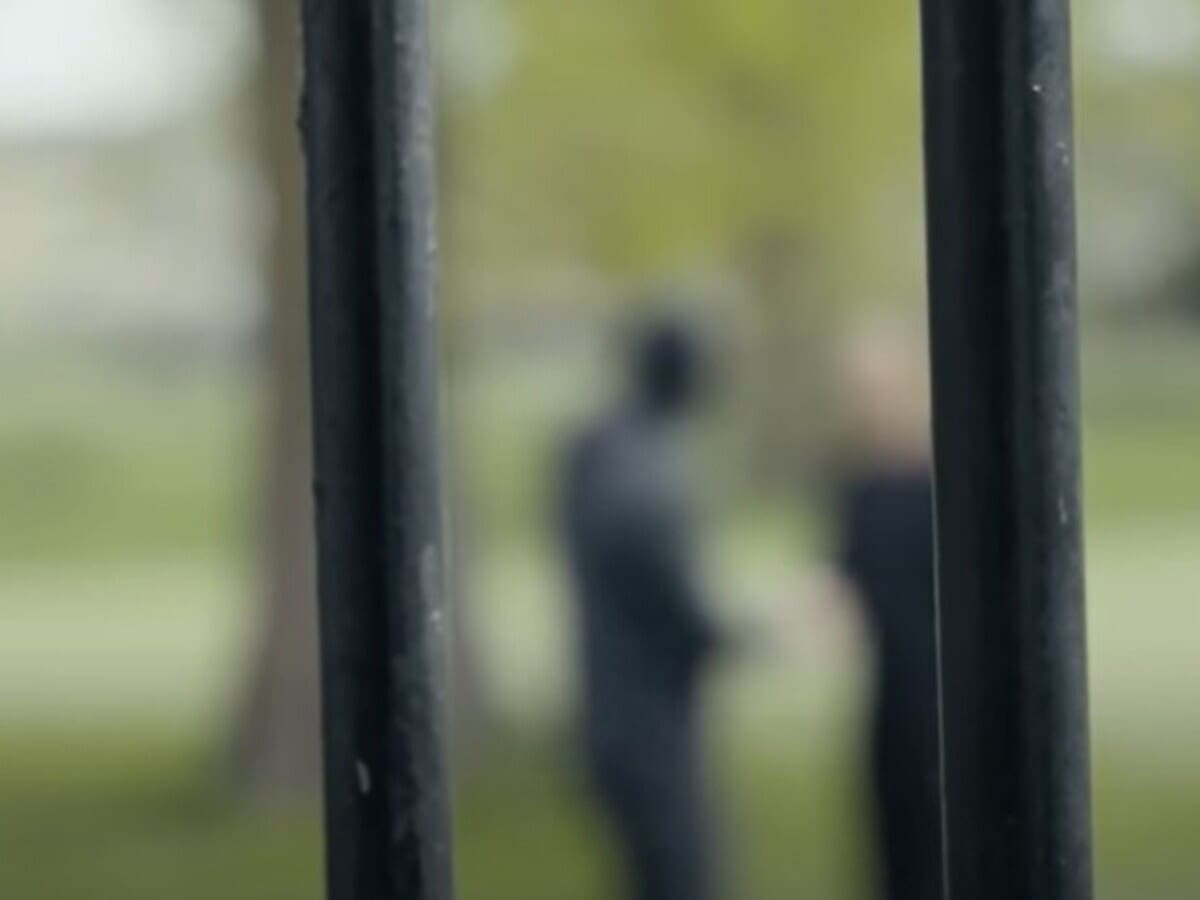UK prisons are “on the point of collapse” and in need of reform. This was the verdict from new Labour Party justice secretary Shabana Mahmood.
On Friday 12 July, she announced plans for the early release of thousands of prisoners. But overcrowding isn’t the only issue when it comes to the UK prison system. With crumbling buildings, staff shortages and inadequate training, it’s no surprise that one in four prisoners go on to reoffend. In fact, prisons are perhaps the most unrivalled example of a country crying out for the reality of Labour’s promised “Change.”
It’s about time that Britain’s justice system focusses on rehabilitation rather than ineffectual punishment. However, it remains to be seen if the government will move on from the regressive cycle of harsher sentencing.
Labour prison reform: early releases
Of the nearly 84,500 places in men’s prisons, barely 700 cells are empty.
Early release is only an emergency solution but the implications are still huge. According to the Big Issue, around 785 prisoners could be at risk of homelessness, when prisons release them last minute and without the support to help them with their transition. As the Times previously put it:
It is not an announcement that any sane politician would wish to make, or member of the public to hear
However, it is not as if Mahmood had much choice in the matter given the extent of overcrowding in UK prisons. Rishi Sunak’s justice secretary Alex Chalk had proposed a practically identical early release scheme. Despite this, Sunak blocked it earlier this year out of fear for political backlash.
The justice and prison system has always been a contentious topic in public opinion. Too often politicians have pursued increasingly authoritarian crime policy for the sake of popular approval. However the early release of prisoners due to overcrowding demonstrates that this does not work.
Overcrowding
Overcrowding in prisons has become an acute issue for two main reasons: tougher sentences and court backlogs. In an effort for politicians to appear ‘tough on crime’, custodial sentences are increasing.
According to the Prison Reform Trust, more than three times as many people were sentenced to ten years or more in 2022 than in 2008. In fact, England and Wales have the highest imprisonment rate in Western Europe. And yet ironically, most people seem to think that sentences are getting shorter, fueling a pointless partisan competition over sentencing.
The result is inhumane overcrowding that undermines the prison system’s ability to meet basic human needs, such as healthcare and accommodation.
Tory-inflicted austerity has undoubtedly impacted this. The Conservatives began to reduce prison funding in 2011/12 as part of this policy, and it reached an all time low in 2014/15 at £393bn. Combine this with pre-existing overcrowding, and the Tories have sacrificed rehabilitation, mental health training, and even maintenance to the cost of building more prisons.
In a February 2024 report, chief inspector of prisons, Charlie Taylor, described walking into a unit in Eastwood Park:
Acutely mentally unwell women were being held in appalling conditions with bloodstains on the floor and scratch marks on the walls; evidence of the levels of distress of the women being held there.
Unfortunately, horrific conditions such as these are not uncommon. This is especially the case following the Covid pandemic, which further isolated vulnerable inmates. Ultimately, our prisons are a disgrace to ethics, cost, and reoffending rates.
A different kind of justice
In September 2023, a German court in Karlsruhe refused to extradite a man to the UK. The report cited concerns over the safety and conditions of UK prisons.
The England and Wales prison watchdog has said that the government should shut down one in ten prisons in those two countries because of overcrowding and inhumane conditions. England and Wales’ rate of prison admissions is approximately three times that of Italy and Spain and almost twice as high as Germany. So what is it that we are getting wrong?
Halden prison Norway is referred to as the most humane prison in the world. “Who do we want as our neighbour?” has become almost like a slogan within its walls. The prison is situated within a luscious pine forest and with shared kitchens and ensuite bathrooms some have described it as more like a university campus.
The comparison is not without substance. There is a school on site that provides prisoners a proper education. It also offers training in tasks such as car mechanics and cooking to help them find a job on the outside. Perhaps the most striking thing about Halden is the relationship between prisoners and guards. Not only do they eat together and play sports, but inmates purportedly view guards as role models.
Of course many people object to such a ‘cushy’ lifestyle awarded to drug traffickers and murderers, including the heinous criminal Anders Breivik. However there is no denying the system its successes. Defenders of Norway’s prison system argue that the removal of freedom is punishment enough.
Moreover, Norway’s prisons have proven that keeping normal routines and helping prisoners line up a job on the outside keeps down reoffending rates. Since the reforms, this has fallen to only 20% after two years.
Changing the UK system
Almost 130 years ago, in 1895, the a government’s Gladstone Committee published a key report on prisons. This stated that reform and rehabilitation should be the primary objectives of imprisonment – men and women should be better people upon release. This ran contrary to the perception of British prisons at the time, infamous for their brutality, even in Russia.
However, the report also emphasised that the purpose of imprisonment was to punish. If this dual focus may appear to be a contradiction – that’s because it is. And it effectively sums up the British dilemma when it comes to the goal of imprisonment. As Stephen Bush has put it in the Financial Times, Conservative governments in the last 14 years have tried to:
pursue draconian ends when it came to prisons, but on a reform-minded minister’s budget.
Striking the balance between rehabilitation and punitive punishment is not a new problem. Despite prison reforming legislation throughout the 20th century, politicians have been de-prioritising rehabilitation since the late 1970s. Michael Cavadino and James Dignan’s research for their 2003 book The Penal System found that this change was based on a loss of public confidence in the rehabilitation scheme.
In 1993, Conservative home secretary, Michael Howard, uttered the words: “prison works”.
Indeed, crime rates have dropped significantly since then. But as Stephen Bush rightfully notes, this has as much to do with being a government in the second half of the 20th century as anything else. The problems with a purely punitive system of justice are not just ethical – there are also practical issues.
More people means more crimes, which in turn means more cells, more prisons, and ultimately more money. It’s a system with an insatiable appetite for funds, not least considering the annual £18bn bill stemming from reoffending. As Mahmood noted in her speech on 12 July, nearly 80% of offences in the UK are second offences.
What now on Labour prison reform?
With the largest governmental majority since 1997, Labour now has a fleeting opportunity to change prisons. Nevertheless, it’s important to note the distinction between official rhetoric and practical solutions.
Despite fluctuating legislation and attitudes around rehabilitation in the last 100 years, the key problems in prisons have remained predominantly consistent. Undoubtedly, Britain’s prison problem will not be an easy fix. However there is evidence that the government is taking steps in the right direction.
Keir Starmer has appointed James Timpson as the new prisons minister. His family key-cutting business is known for recruiting thousands of prison leavers and he was also chair of the Prison Reform Trust. Timpson is an advocate for the Dutch system of community sentencing. He also previously said that only a third of prisoners should definitely be in custody.
So the question is this: what direction will Labour prison reform take?
Perhaps a former prosecution officer at the helm will finally lead the way to meaningful change? What is for certain is that whatever Labour chooses to do will have a hefty price tag attached. However, it’s about time that governments considered the long-term future. Changing the focus of the prison system from punitive to rehabilitative would be just that – an essential piece in a sustainable future.
Feature image via Youtube – Channel 4 Documentaries




